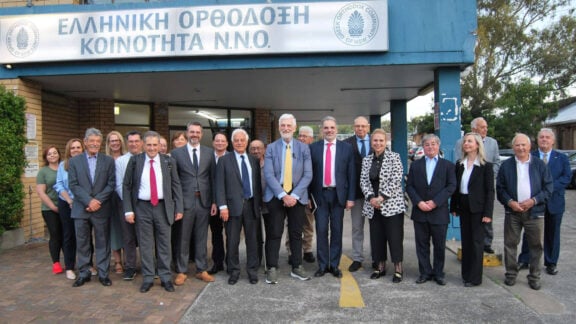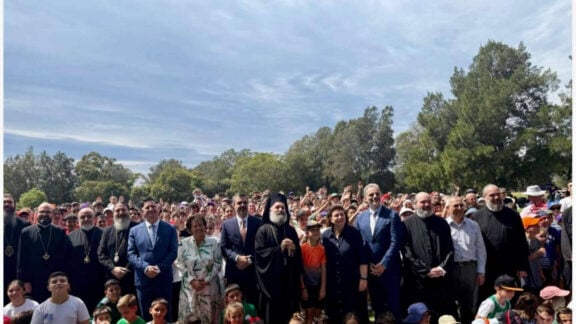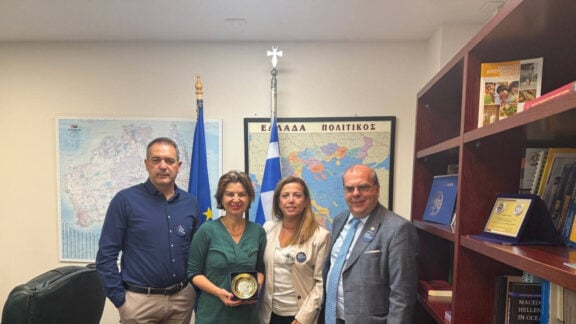Former Queensland premier Joh Bjelke-Petersen, a major influence in state and Commonwealth politics for 60 years, used to refer to press conferences as ‘feeding the chooks’. Refusing repeated calls to introduce openness and accountability, he ran a sophisticated media operation. Press releases would be sent right on deadline so journalists had very little time to research stories and his catchphrase, “Don’t you worry about that”, was widely parodied.
Even he would have marvelled at the opportunities COVID-19 has presented for manipulation of the media thanks to muting techniques which don’t allow for follow-up questions, requests for questions to be submitted in advance and then certain submitted questions ignored altogether. But the cherry on the cake came when Victoria’s Premier Daniel Andrews set a new precedent by banning multicultural media from the state government’s daily COVID-19 briefings despite our repeated requests to gain access.
Mainstream media, much of which is controlled by large conglomerates, were allowed access to daily briefings and could ask Mr Andrews and the state’s health officials about St Basil’s and deaths in aged care. Independent multicultural newspapers unaffiliated with these large media corporations were kept outside even though we were inundated by community members who approached us as their most trusted and valued source to share their stories about aged care homes, elderly dying in hospital beds and their tribulations as they lay stranded in other countries.
Our small newsroom was bombarded with questions from media groups around the globe, but we were not privy to daily briefings so our information regarding the state’s handling of the COVID-19 crisis came second hand or through the back door as we were slipped an insight or two about the goings-on at the adults’ table.
Neos Kosmos publisher Christopher Gogos could not stand by as our inalienable right to information was trampled upon. His editorial insight on the patronising attitude exercised by the state government was scathing and drew attention – and we hope it also brings about change.
Reaction to the article was plentiful, Federal Labor member Maria Vamvakinou MP told Neos Kosmos the exclusion was “unfortunate”, Immigration Lawyer Joe Italiano said it showed “contempt for ethnic media”, Greek Community Member (GCM) President Bill Papastergiadis said it was “not acceptable”, Australia’s Federal Liberal Immigration Minister Alan Tudge said he was “disappointed to hear that multicultural media have not been given sufficient access to state government briefings”, former state Labor MP Theo Theophanos wants to see “strength in diversity”, journalist George Donikian said he often felt like an “outsider”, writer/former journalism lecturer Phil Kafcaloudis said it “looks… bad” and Victoria’s Shadow Multicultural Affairs Minister Neil Angus spoke of one of “the most secretive governments in Victoria’s history”. Australia’s Shadow Immigration Minister Andrew Giles said he would comment on the issue of the exclusive press conferences before hearing the reasons for this.
READ MORE: Governments must stop the patronising attitude to multicultural media
Mr Andrews’ office did not respond despite our requests for an interview. Silence. So we contacted Labor’s state member for Oakleigh, Steve Dimopoulos, who told Neos Kosmos “the government conducts press conferences that follow the Chief Health Officer’s directions in relation to how many people (per square metre) can be in a space”. He explained how the exclusion was not “patronising” but that the area was not large enough to accommodate mainstream media, TV news channels, Auslan interpreters, which are still far fewer than multicultural news groups so “there is not much room left for many journalists”.
Mr Dimopoulos said that the premier would respond to media via other correspondence (hopefully better than has been the case with our repeated requests for an interview on the inclusivity of multicultural media for the purposes of this article).
He said the state government values its relationship with the “multicultural media – we understand that the term ‘mainstream’ media is increasingly becoming irrelevant given there are so many media platforms that Victorians access”, Mr Dimopoulos said.
“We can and should do more to engage Neos Kosmos and multicultural media more generally and I will work with the Premier towards that end. The Greek community has suffered a disproportionate toll with many of the death coming from our community. The Government recognises this and is committed to doing more to engage Greek community media.”
Mr Theophanos told Neos Kosmos “the problem is that with more than 150 different language-based media it would be impossible to cater for this need through traditional media conferences such as the ones that are conducted each day by the Premier. This means that the mainstream media has some obligation to ask questions almost like proxies at such conferences. But most of the media focus on the big picture rather than on how individual ethnic groups are affected. The Greek Community’s share of the 800 COVID deaths is at least 150. Yet very few questions were asked by the mainstream media directly about this. Even organisations like SBS are found wanting preferring to mimic the lines of questioning of the other outlets.”
Immigration lawyer Joseph Italiano laments the days when the multicultural press was revered. “If social distancing is an issue, why not just have a live multicultural press briefing after the mainstream press?” he asked, but he wonders if even that is enough. Realising that journalists today, especially in community newsrooms, cover everything from politics, police beats to sport, he feels that more needs to be done to ensure transparency as opposed to pressers which resemble a “Stalinist show trial”.
“Journalists aren’t health experts or lawyers. Resources are scarce and they need to be assisted with grants to ensure that they are able to properly investigate,” he said, calling for community grants to aid in the dissemination of information and community dialogue with journalists present to avoid instances of gaslighting.
He has directly seen how necessary it is to ensure that multicultural media have the resources to properly do their job. “Multicultural newsrooms are interested in their communities and their relevance is still high,” Mr Italiano said.
Everyone talks of the importance of multicultural media, but valuing it means different things to different people. Mr Tudge states that he has “given many one-on-one interviews with multicultural media outlets” (not Neos Kosmos) and has continued to host online conferences though he admits that these “can present technical challenges, which is why my staff ask people to indicate ahead of time if they wish to ask a question” though journalists don’t need to submit questions for these to be vetted. He speaks of “time limit” challenges when it comes to questions and points to a press conference which Australia’s Prime Minister Scott Morrison with dozens of multicultural media outlets, including Neos Kosmos. Unfortunately, he was unable to respond to the question submitted in advance by the Greek Australian journalist as the main focus of the conference was of relevance to new migrant groups rather than established multicultural communities which these days have interests closely aligned to the mainstream.
READ MORE: Prime Minister Scott Morrison, ministers Tudge and Wood meet with community leaders
Ms Vamvakinou said “the concept of multicultural policy has been underpinned by access and equity”, and added “relevance of the multicultural press is still high with one of the biggest problems being getting proper information out there so that CALD communities are kept informed.”
On his part, Mr Giles pointed to the fortnightly online press conferences held by Federal Labor Senator Kristina Kenneally, attended by 20-30 multicultural media outlets. “We know how important it is to listen and engage in a proper dialogue,” however these webinars scoop general questions asked by different groups to save time. Nonetheless, Mr Giles said he has made a point of hosting one-on-one interviews – a fact Neos Kosmos can vouch for.
Victoria’s opposition Liberal Leader Michael O’Brien held a press conference with the multicultural media – where nobody was muted and we were allowed to ask follow-up questions. Mr Angus told Neos Kosmos it was viewed as necessary. “Multicultural communities have been disproportionately affected by the coronavirus, making it all the more important that media have access to government press conferences,” he said.
Mr Kafcaloudis said an opportunity was lost when the multicultural media was excluded from briefings. “Instead of the Premier and senior health officials getting questions from representatives of the Greek community, we get the same questions from the same journalists day after day,” he said, adding that the coverage of older Greeks being infected was narrowly covered in the briefings.
“It would be a bad look for the Premier to not invite back a journalist who was critical, but it looks equally bad for whole swathes of the community not to be represented. Perhaps the government could have a hot seat for different ethnic communities to put forward a representative (Greek one day, Vietnamese the next). I would think it would be a no-brainer. Questions are there to be asked, and a journalist needs to be there to ask follow-up questions,” he said.
And COVID-19 or not, that’s the fundamental principle of good journalism.
Mary Sinanidis is the editor of Neos Kosmos.









